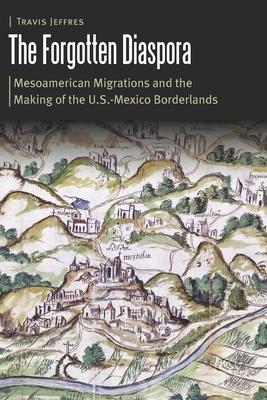In The Forgotten Diaspora Travis Jeffres explores how Native Mexicans involved in the conquest of the Greater Southwest pursued hidden agendas, deploying a covert agency that enabled them to reconstruct Indigenous communities and retain key components of their identities even as they were technically allied with and subordinate to Spaniards. Resisting, modifying, and even flatly ignoring Spanish directives, Indigenous Mexicans in diaspora co-created the U.S.-Mexico borderlands and laid enduring claims to the region.
Jeffres contends that tens of thousands--perhaps hundreds of thousands--of central Mexican Natives were indispensable to Spanish colonial expansion in the Greater Southwest in the sixteenth and seventeenth centuries. These vital allies populated frontier settlements, assisted in converting local Indians to Christianity, and provided essential labor in the mining industry that drove frontier expansion and catapulted Spain to global hegemony. However, Nahuatl records reveal that Indigenous migrants were no mere auxiliaries to European colonial causes; they also subverted imperial aims and pursued their own agendas, wresting lands, privileges, and even rights to self-rule from the Spanish Crown. Via Nahuatl-language "hidden transcripts" of Native allies' motivations and agendas, The Forgotten Diaspora reimagines this critical yet neglected component of the hemispheric colonial-era scattering of the Americas' Indigenous peoples.
Travis Jeffres is a public historian with the City of Boise, Idaho. He was previously Duane King Postdoctoral Fellow at the Helmerich Center for American Research.
